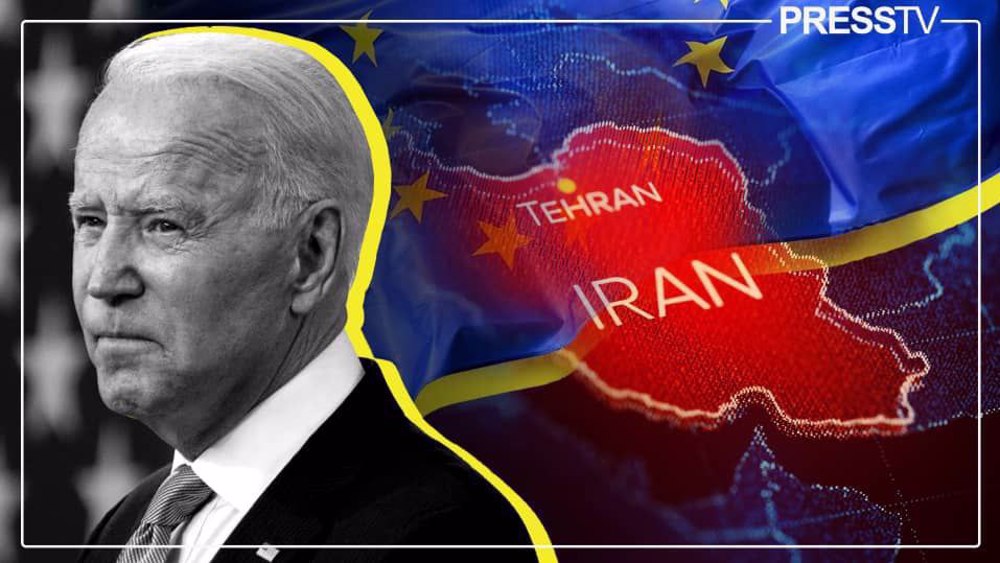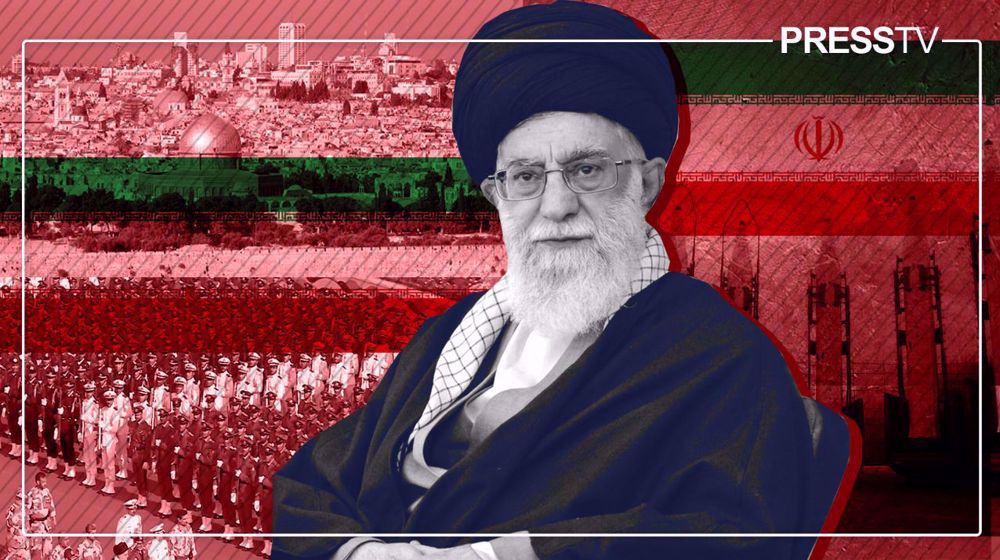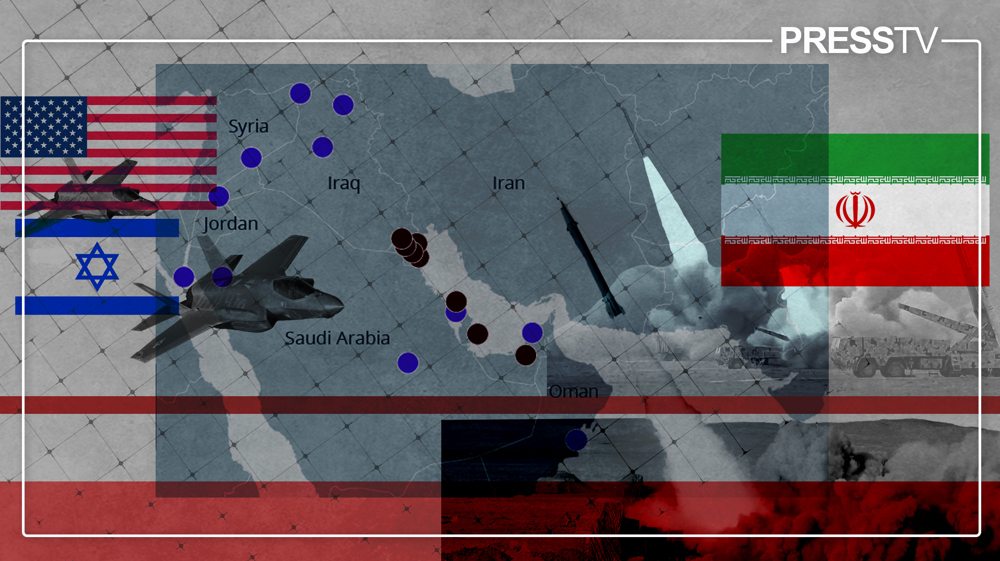It's not about Hijab or women's rights but forcing Iran into submission
By Elijah J. Magnier
The United States has announced that it is preparing to impose new sanctions on the Islamic Republic of Iran because of so-called "human rights violations".
Canadian Foreign Minister Melanie Joly also announced that she would impose new sanctions against 25 individuals and nine entities in Iran due to what she termed "repressive measures and violation of human rights and international law".
Is it really about human rights or the fact that Iran is resisting capitulation to Western hegemony?
In 1979, the victory of the Islamic Revolution marked the end of Western interference in Iran. Ever since, the United States has imposed waves of sanctions on Iranian government institutions, financial systems, individuals, central banks, and shipping companies, to name a few.
Washington did not distinguish between what it classifies as "moderate" or "extremist" governments. It treated them equally as they refused to submit to the US hegemony.
Over the past 43 years, various Western offers have been made to Iran through direct and indirect channels to abandon the Palestinian cause, renounce hostility towards the Israeli regime and generally end support for the oppressed, weak and vulnerable worldwide.
In exchange, the US would ensure Iran continues to be an ally of the West, and controls the Middle East, as was the case with the Shah of Iran, nicknamed the US "policeman of the Middle East".
The Islamic Republic spurned all such offers, handed over the Israeli diplomatic mission in Tehran to the Palestine Liberation Organisation, and gave the name of Palestine to the street hosting the embassy (Palestine Street No. 347) in the Iranian capital.
Over the years, some Iranian governments, the latest under Hassan Rouhani, believed that the US or Europe would want full commercial, economic and diplomatic relations with Tehran.
That's how nuclear talks were launched and culminated in the 2015 agreement. However, its terms were never fully respected by the Obama administration (which signed it), or by Europe, which withdrew support from Iran immediately after Donald Trump tore up the deal in 2018.
Iran is the only country in West Asia that did not acquiesce to the US hegemony even when Russia and China acknowledged US dominance from 1991 until 2015 when Moscow was involved in the Syrian war. Iran was the only "rebellious" country in Asia and the Middle East, challenging the world's so-called greatest and most powerful nation.
The Leader of the Islamic Revolution, Ayatollah Sayyed Ali Khamenei, has always displayed his deep understanding of the unconstructive Western behavior toward Iran and stressed learning a crucial lesson: America will not sleep as long as Iran is strong and Israel fears it.
Ayatollah Khamenei never believed that a "Democratic" US president would be better than a "Republican" because the US deep state is unchangeable. US hostility to Iran is transmitted from one American administration to another.
It is mistakenly thought by some that within the American administration, there are so-called "pro-Iranian" officials, such as Robert Malley, the special envoy for nuclear negotiations.
Absolutely, on the contrary, there is a harsh trend towards Iran, which is not modifying but intensifying. When Russia defied global unilateralism and announced that it "will stand with Iran and China in the face of US hegemony," this trend was accentuated.
Under Sayyed Ebrahim Raeisi's government, Iran chose to adopt the "resistance economy" and turn trade and economic development away from the West (which represents only 11 percent of the world's population) and toward two-thirds of the world.
Europe's behavior proved its lack of readiness to detach itself from the US hegemony, where European leaders have created a considerable gap between their decisions and meeting their populations' needs.
Decisions taken by most European nations are incompatible with the well-being of the European population, fueling a lack of domestic energy, an increase in prices of first necessities, and severe inflation due to the boycott of Russia's gas supply (and soon oil).
Europe believes that its problems are the world's problems and that the world's problems are not its problems. This theory is based on the colonial approach that worked centuries ago against a weaker population but is no longer valid today.
Hence, the anger towards Iran is due to its resistance to endemic Western colonialism and because it has decided to build its economy and defense away from Western dependency.
For this reason, the nuclear deal is no longer Tehran's top priority, without it necessarily being abandoned. However, it is ready to return to it if that does not affect Iran's national security.
Eventually, Washington realized what was at stake and that it was far from successfully forcing its submission on Iran. For this reason, Washington is turning towards its favorite pastime, waving "human rights" and "democracy" as an excuse to impose further sanctions on Iran.
An open letter received by Trump’s Secretary of State Rex Tillerson in February 2018 instructed him that "America does not use human rights violations against its allies, but rather against its enemies such as Iran, China, Cuba, Russia, and North Korea."
Moreover, in front of US Congress, Senator Christopher Murphy admitted that his country "gave a pass to the violation of the human rights of its allies in exchange for the continued supply of energy to serve the interests of the United States of America."
Thus, the "human rights" narrative has a different meaning when selectively used by the US: it becomes instead synonymous with "regime change" and "color revolution" when the country concerned does not surrender or succumb to American demands and policies.
Like the recent events in Iran, manifestations become "riots", with the stabbing of security officers, torching of ambulances, and destruction of public and private properties. Yet, in a population of 85 million, it is healthy to have political opposition and criticism against the government's policies or practices. That is the Islamic Republic of Iran's system of democracy.
However, in Iran, manifestations are not treated like the French "Gilets Jaunes" protesters, when the police practice was way beyond any level acceptable in a Western democracy. Or even to the US where at least 1049 civilians were killed inside police stations in the last year.
In Iran, manifestations are especially received with open arms by the mainstream media, under western leaders' influence, to twist the angry reaction of a group of people into "the will of the population (in fact, it is the will of the US) to change the current regime.”
This is not the first time Iran has faced US manipulation of the angry Iranian street manifestations, and it certainly won't be the last. Therefore, it is clear that US hostility towards Iran will continue until Washington’s global dominance ends. This process has visibly begun in Ukraine.
Moreover, even the recent exchange of prisoners between the US and Iran has nothing to do with a rapprochement between the two countries. Instead, it was a success for Iranian diplomacy, which accepted a US offer to exchange prisoners and recover its stolen money held by countries (South Korea and others), which succumbed to the unilateral and illegal US sanctions.
The US and its allies have failed to understand that Iranian ideology is consistent and robust. It also is not about veil or women's rights. Whatever it does, the US is manifestly powerless to break the Iranian will and force Iran to its knees: but it is not expected to stop trying.
Elijah J. Magnier is a veteran war correspondent and a Senior Political Risk Analyst with decades of experience covering the West Asian region.
(The views expressed in this article do not necessarily reflect those of Press TV.)
Iran sets three-day ceremony to bid farewell to late Ayatollah Khamenei
Tehran warns EU against ‘Nazi mindsets,’ slams German backing of Israeli-US aggression
Iran agreed to nuclear concessions in Geneva talks – and then US-Israel bombed
Witkoff undermined Iran talks by peddling lies to build case for military aggression: Report
Scrutiny mounts over Trump’s Iran war amid contradictory claims, soaring costs: Reports
No imminent threat, just Israeli agenda: US senators push back on war on Iran
Handala group hacks notorious Israeli think tank known for anti-Iran propaganda
IRGC Ground Force launches 3 major operations in response to Israeli-US aggression










 This makes it easy to access the Press TV website
This makes it easy to access the Press TV website